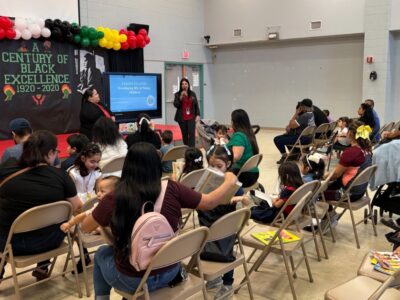
Investing in early childhood education is widely recognized as a critical component for promoting equity, reducing achievement gaps, and ensuring the well-being of children and families.
Melanie Johnson, president & CEO, Collaborative for Children, served as monitor for the panel discussion titled ‘Early Childhood Education Forum Support, Resources, and Access,’ hosted by The Greater Houston Partnership.
The panel included the following leaders in the Houston area nonprofits:
- Claudia Aguirre, president & CEO, BakerRipley
- Amanda McMillian, president & CEO, United Way of Greater Houston
- Cary Wright, CEO, Good Reason Houston
All the panelists agreed that the upcoming Texas Legislative session is critical to making strides in early childhood education, an aspect of public education that needs to be sufficiently funded to achieve the successful outcomes seen in other U.S. states and nations of the developed world.
Other topics discussed were ongoing challenges such as the following:
- Navigating external factors such as the COVID-19 pandemic
- Supporting the teachers and support staff in early childhood education
- Looking at the most successful pre-K programs, such as Finland’s
“We find that as a result of Covid-19, we were having to wear masks, and children lost a lot of those socio-emotional skills,” Johnson said. “They didn’t understand the ‘smile’ versus the ‘frown’ and how it relates to people because we were pretty much covered up, and they didn’t get the experience. So it set them back a great deal. Some say it’s two calendar years.”
The panel expressed various viewpoints on what they think the future grades of students affected by the COVID-19 pandemic might look like but agreed that not only will their test scores likely reveal that pre-K children deprived of early childhood development during that time will be the most impacted.
“I don’t think we’ll know the true impact. And we’ll see it in stages and some… spikes every few years when we see the eighth grade, right? That’s when… [some of] our kids drop out after not being third-grade ready,” Aguirre said. ”We’ll see it at graduation when 50 percent of students are supposed to graduate. We’ll see it at college. So we’ll see it in stages, but we won’t see the total impact for years.”
Stay updated with the latest HISD news! Download our new HISD Source app, available for both Android and Apple devices













